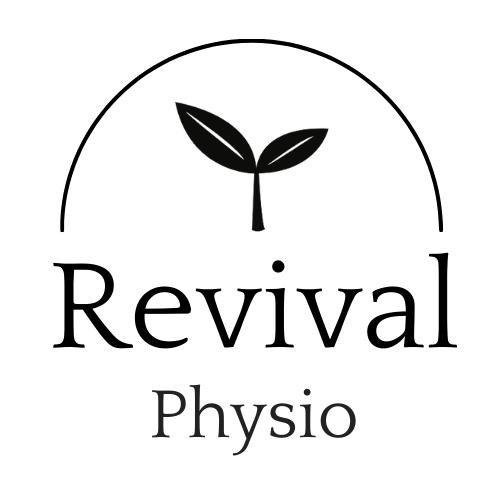
Pelvic Floor Physiotherapy for Pregnancy and Optimal Postpartum Recovery
Pregnancy significantly impacts the female body, leading to various changes that can affect the pelvic floor. The pelvic floor muscles support the growing uterus, bladder, and bowels, and their health is crucial for comfortable pregnancy and postpartum recovery.
Pelvic floor physiotherapy during pregnancy can help prepare these muscles for childbirth and address potential issues such as incontinence, pelvic pain, and discomfort. A trained physiotherapist can provide guidance on appropriate exercises to strengthen or relax the pelvic floor, improve posture, and enhance overall mobility.
How at Revival Physio can support you with your pregnancy:
Pelvic Floor Assessment: A pelvic floor physiotherapist can assess the strength, flexibility, and function of the pelvic floor muscles via internal vaginal assessment. This assessment helps identify any issues, such as weakness, tightness, or dysfunction, that may contribute to pelvic discomfort or urinary incontinence.
Education on Pelvic Floor Anatomy and Function: Physiotherapists provide education about the pelvic floor anatomy and the role these muscles play in supporting the pelvic organs. This knowledge empowers pregnant individuals to understand and engage their pelvic floor muscles effectively.
Prevention and Management of Incontinence: Pelvic floor physiotherapy can help prevent and manage urinary incontinence, a common issue during pregnancy. Techniques may include pelvic floor muscle exercises, biofeedback, and lifestyle modifications to reduce the risk of incontinence.
Pain Management: Physiotherapists can address pelvic girdle pain, lower back pain, rib pain (causing shortness of breath) and other musculoskeletal issues related to pregnancy. Manual therapy, exercises, and postural education may be utilized to alleviate pain and improve overall comfort.
Preparation for Labor and Delivery: Pelvic floor physiotherapy includes exercises and techniques (e.g. how to push) to prepare the pelvic floor muscles for labor and delivery. This may involve learning how to relax and control these muscles during the various stages of childbirth. At 34 weeks, it is recommended you book a 1 hour session with your partner at Revival Physio to review labour positioning, perineal massage (to reduce tearing risk) and ways your partner can support you during birth. Our physiotherapists use your birth preferences, and the information guidelines from the Society of Obstetricians and Gynaecologists of Canada and Association of Midwives of Ontario to inform your consultation.
Postural Education: Physiotherapists can provide guidance on maintaining good posture during pregnancy to reduce strain on the pelvic floor and prevent issues such as back pain.
Taping: Taping the bump during pregnancy can provide support and relief for expectant mothers experiencing discomfort in the lower back, pelvis, or abdominal area. Kinesiology tape, which is often used in rehabilitation, can be beneficial for alleviating pain and improving stability.
Breathing Techniques: Proper breathing techniques are important for pelvic floor function. Physiotherapists can teach breathing exercises that support pelvic floor relaxation and engagement, promoting optimal muscle function.
Individualized Exercise Programs: Tailored exercise programs are designed to address the specific needs and concerns of each pregnant individual. These programs often include pelvic floor exercises, core strengthening, and overall body conditioning. We can also integrate physio reformer pilates and physio yoga to hit your movement, release, and strength rehab-based goals.
Support for Pelvic Organ Prolapse: For individuals at risk of or experiencing pelvic organ prolapse, pelvic floor physiotherapy can provide support through exercises and lifestyle modifications to minimize symptoms and improve quality of life.
Postpartum Recovery Planning: At 37 weeks, a pelvic floor physiotherapist at Revival Physio will review what to in the first 6 weeks postpartum for both vaginal or c-section births. It is recommended that you check in 6 weeks postpartum to help regain pelvic floor strength and function after childbirth and address any issues that may arise during the postpartum period. There is also the option to book an initial Cesarean Scar Release Physiotherapy appointment if you had a c-section birth!
Pelvic floor physiotherapy can help educate expectant mothers about their bodies, empowering them to make informed decisions regarding their health and wellness throughout pregnancy and beyond. With a focus on individual needs, physiotherapy can be an essential part of prenatal care, contributing to a positive birth experience and supporting overall well-being and improved postpartum recovery.

